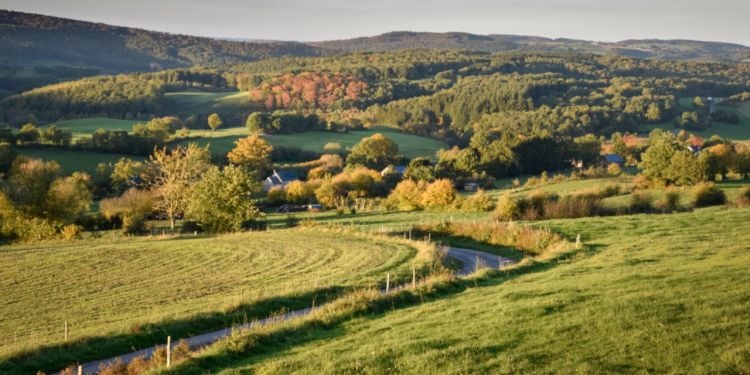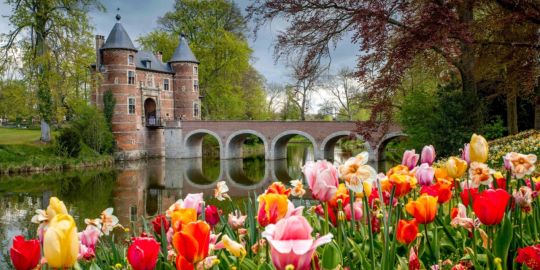Environment and Ecology in Belgium

Belgium puts a lot of effort into preserving the environment and the ecological state of its country. Laws and concepts in place help preserve the Flat Country.
Environmental policy in Belgium
Each region has its own environmental policy. Wallonia applies The Regional Land Use Plan and The Mobility Plan. These two plans take sustainable development into account at a regional level.
In Brussels, the Regional Land Use Plan is involved in green areas, which include parks and forests. There are also green and a blue networks. These two networks support the integration of biodiversity by defining green areas and wetlands. Even though it's a capital city, Brussels is home to lots of green spaces: forests, gardens, parks, private estates, green cemeteries, etc.
Finally, the Flemish region is equipped with the ecological Flemish network, called Vlaams Ecologisch Netwerk in Dutch. This network gathers the important natural entities, as well as all the existing and developing ones. The Environmental Management Plan of the region is dedicated to implementing environmental objectives in the years to come. It addresses the environment, nature, and energy. It revolves around annual programs helping to reach implemented goals agreed upon between the different institutions working towards them and the region.
On 17 September 2020, the European Commission came up with an environmental policy for the entirety of the EU. From this, Belgium has pledged to cut its greenhouse gas emissions by 35% before 2030.
Plant protection
Green spaces and other natural environments in Belgium are under very delicate protection in every region. Some places are even registered under Natura 2000, a European network of nature protection areas.
What about waste in Belgium?
Belgium uses selective sorting. This means residents are requested to separate glass, cardboard, plastic, and green waste (fruits, vegetables, peel, herbs, etc.). You can dispose of this waste at your commune's local container park, as each one has one. At home, you can use the blue bag to put PMD waste in it (plastic packaging, metal packaging, and drink cartons).
In most towns, glass jars and bottles have to be sorted by whether they're transparent or colored. On the other hand, opaque glass, porcelain, mirrors, and any other type of glass can't be recycled in town. They have to be brought to recycling centers, alongside large items.
As for cardboard and paper, they need to be clean enough to be recycled. Packages in contact with food (butter tubs, yogurt pots, etc.), toilet paper, and tissues can't be recycled. They're considered non-selected waste.
Green waste is collected, but you can also have a compost bin or bring the waste to recycling centers.
Anything reusable can be donated to second-hand shops, recycling centers, and textile containers, such as mattresses, bedding, furniture in good condition, and ready-to-wear clothes.
If you have electronic waste, you just need to find a nearby recycling point to drop off your batteries, light bulbs, etc. These are blue bins you'll usually spot at your local supermarket or electronics shop.
For expired medications, you can bring them to your pharmacy. They'll know how to dispose of your medicine properly.
For those who need some incentivization for looking after the environment, you'll be pleased to know that there's an app called De Click (The Click). Currently, it's only available in De Haan and Antwerp, but they'll probably expand to other cities after the year-long trial in Antwerp is over in summer 2022. Whenever you throw away something in the appropriate waste bin, you can scan it with the app and you'll accumulate Circular UCoins, which you can use at participating local merchants.
Fees are given out for polluting a public highway in Belgium and usually vary from €50 to €125. This amount can be five times higher if the offense is serious.
Environment-friendly Transportation
The country developed several bike parks and built more bike lanes to help protect the environment. Cycling is a very popular means of transportation in Belgium.
When cyclists have an accident with a car, they benefit from additional protection. Whether or not the third party is responsible for the accident, cyclists are eligible for compensation from them, based on physical, clothing, and even accessory damage (e.g. glasses). These measures aim to protect cyclists but also promote this means of transportation instead of driving.









